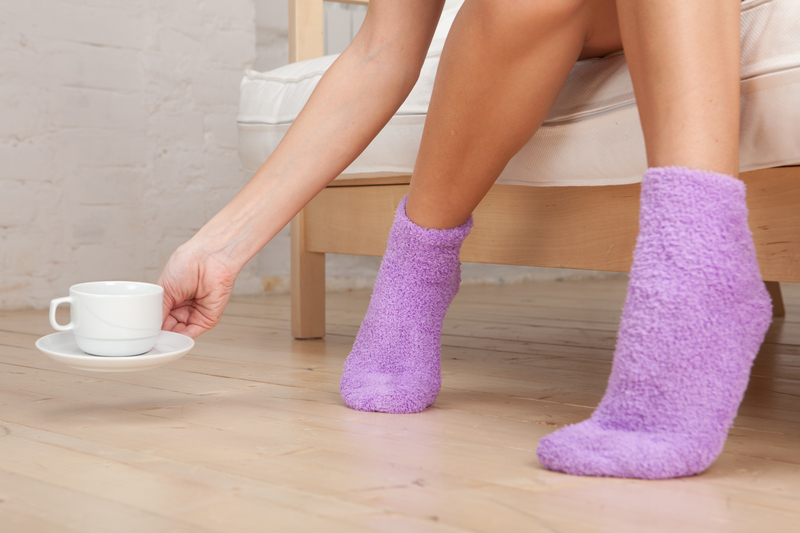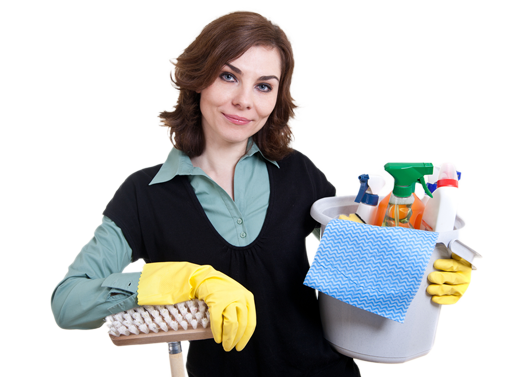Adopt Simple Ways to Rid Your Home of Pet Odors
Posted on 18/08/2025
Adopt Simple Ways to Rid Your Home of Pet Odors
Living with pets brings great joy and companionship, but it can also bring some unavoidable challenges--one of the most common being stubborn pet odors. Whether you have a furry dog, a mischievous cat, or even a small rodent, ensuring your house smells fresh is essential for comfort and peace of mind. In this comprehensive guide, we share practical and effective methods to help you eliminate pet smells from your home, keeping your living spaces inviting for both you and your guests.
Understanding the Source of Pet Odors
Before diving into solutions, it's important to understand why pet odors linger. Animals frequently shed fur, leave dander, and may have accidents. Their bedding, toys, and even saliva can all contribute to that distinctive pet smell. Identifying the source helps in the application of effective odor removal techniques.
Common Causes of Pet Odors
- Accidents: Even well-trained pets can have occasional mishaps, leading to urine or fecal odors
- Skin Oils: Natural oils released by pets can settle into carpets and furniture
- Dander: Small, even invisible, skin flakes that cause persistent smells
- Dirty Litter Boxes: Especially problematic for cat owners
- Unwashed Pet Bedding and Toys: Accumulate odors over time
With these in mind, let's explore simple yet effective ways to get rid of pet odors and keep your home smelling fresh.

1. Maintain Regular Pet Hygiene
One of the simplest methods to prevent pet odor is to keep your pets themselves clean and well-groomed.
Bathing Your Pet
- Regular Baths: Use appropriate shampoos designed for your animal. Over-bathing can dry out their skin, so consult with your vet about an ideal schedule.
- Wipe Downs: In between baths, use pet wipes or a damp cloth for quick cleaning of paws and fur.
Brush Fur and Control Shedding
- Frequent Brushing: Reduces dander and loose hair, common sources of odor.
- Vacuum Regularly: This not only cleans fur but also prevents buildup in carpets and furniture.
2. Deep Clean Your Home Frequently
A consistent cleaning routine is critical in your quest to eliminate pet odors. Tracking your pet's favorite spots and focusing on those areas is crucial.
How to Clean Common Odor Hotspots
-
Carpets and Rugs:
- Use a vacuum with a HEPA filter for best results.
- Sprinkle baking soda liberally and leave it for at least 30 minutes before vacuuming--it absorbs lingering smells.
- For tough spots, use enzymatic cleaners, which break down odor-causing proteins.
-
Furniture and Upholstery:
- Use a handheld vacuum or upholstery attachment to clean nooks and crannies.
- Fabric sprays designed for odor elimination can help.
- If possible, use machine-washable covers and wash them regularly.
-
Hard Floors:
- Clean with pet-safe floor cleaners and regularly mop, especially areas where accidents are common.
-
Windows and Walls:
- Pet oils and dander cling to vertical surfaces--wipe down with a damp cloth and gentle cleaner once a month.
Focus on Air Quality
- Open Windows: Regularly airing out your home decreases stale pet smells.
- Air Purifiers: Invest in a HEPA air purifier. It's effective for removing pet dander and lingering odors from the air.
- Odor Absorbers: Natural products like baking soda, activated charcoal, or specialized odor-absorbing bags work wonders.
3. Tackle Specific Pet Odor Problems
Eliminating Cat Litter Box Odors
- Clean Daily: Scoop litter at least once a day.
- Change Litter Weekly: Don't let clumps accumulate for too long--change litter and wash the box weekly with mild soap.
- Use Baking Soda: Sprinkle a thin layer under the litter to neutralize odors.
- Opt for High-Quality Litter: Unscented, clumping litters are often most effective.
- Keep the Box in a Well-Ventilated Area: This prevents odors from becoming trapped in small spaces.
Handling Dog Odor on Furniture and Bedding
- Wash Bedding Often: Use unscented detergent and hot water.
- Deodorize Furniture: Use pet-safe sprays or a vinegar-water solution for spot cleaning, then wipe dry.
- Leather and Wood Furniture: Treat with appropriate cleansers to prevent absorption of pet oils.
Controlling Small Animal Odors
- Change Bedding Frequently: Small pets (rabbits, hamsters, guinea pigs) require bedding changes at least once a week.
- Wash Cages: Use hot water and mild soap for weekly cleaning.
- Opt for Odor-Neutralizing Bedding: Some products naturally absorb smells better.
4. Adopt Natural Odor Removal Techniques
Commercial products can help, but natural solutions are eco-friendly, cost-effective, and safe for your pets. Here are a few you can try:
- Baking Soda: As mentioned, it's a fantastic odor absorber. Use it on carpets, pet beds, and even inside shoes!
- White Vinegar: Mix with water (1:1 ratio) in a spray bottle for a deodorizing spray that also sanitizes.
- Lemon: Lemon juice is a natural antibacterial and leaves a fresh scent. Dab on spots or add a splash to cleaning water.
- Activated Charcoal: Place small bags around the house to absorb odors without masking them.
Bonus Tip: Houseplants can help purify the air, but ensure any plants you have are non-toxic to pets.
5. Preventing Pet Odors Before They Start
Once you've achieved a fresh-smelling home, the next step is keeping it that way. Prevention is as important as cleaning.
- Establish Pet-Free Zones: Consider keeping pets out of the bedrooms or off specific furniture, at least some of the time.
- Prompt Clean-Up: Accidents should be addressed immediately to prevent stain and odor setting.
- Regular Veterinary Checkups: Poor health, dental issues, or infections in your pet can cause excessive odor.
- Monitor Diet: What your pet eats can affect their smell, so consult your vet for food recommendations.
- Pet Dental Care: Dental hygiene minimizes bad breath, which can linger in the home as well.
6. Do-It-Yourself Odor Removal Recipes
Looking for homemade pet odor removal options? Try these easy, effective, and safe recipes:
DIY Carpet Deodorizer
- 1 cup baking soda
- 10 drops of essential oil (lavender or eucalyptus--ensure pet safety)
- Mix together, sprinkle on carpet, leave for 30-60 minutes, vacuum thoroughly.
All-Purpose Deodorizing Spray
- 1 cup distilled water
- 1 cup white vinegar
- 10 drops lemon essential oil
- Mix in a spray bottle. Test on an inconspicuous area before widespread use.
Upholstery Cleaner
- 1 tablespoon mild dish soap
- 2 cups warm water
- Mix and use with a microfiber cloth. Wipe with clean water, blot dry.
Always check ingredient safety for your pets, as some essential oils can be harmful to specific animals.
7. When to Call the Professionals
If you've tried everything and persistent pet odors remain, it may be time to consider professional cleaning services. Professional carpet and upholstery cleaners use industrial-grade equipment and solutions to remove deep-set odors and stains. This can be particularly helpful for old, set-in smells or for homes with multiple pets.

8. Additional Tips & Mistakes to Avoid
- Don't use ammonia-based cleaners: These can resemble the scent of cat urine and actually increase marking!
- Avoid strong fragrances: They might mask the smell temporarily but can irritate both pet and human allergies.
- Test new cleaners first: Spot-test on fabrics and carpet to avoid discoloration.
- Replace old items: If all else fails, severely soiled rugs or bedding may be best discarded.
Conclusion: Create a Fresh, Comfortable, Pet-Friendly Home
Adopting simple ways to rid your home of pet odors doesn't need to be overwhelming. By focusing on cleanliness, adopting natural solutions, and practicing regular maintenance, you'll enjoy all the love your pets offer without worrying about pesky smells. Remember, fresh-smelling homes start with happy, healthy pets--so a little preventative care goes a long way.
Looking for more tips on keeping your home in top shape? Bookmark this guide and revisit whenever you need inspiration for pet-safe, odor-free living!




